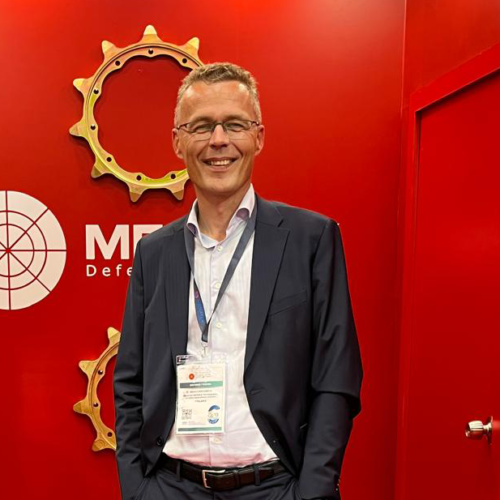Europa Uomo Board member Marko Koivuneva has experienced radiation-induced cystitis ever since treatment for prostate cancer. Here, he talks of his regret at some of the decisions made that led to this complication
I received a diagnosis of prostate cancer five years ago, at the age of 48. The first treatment I received was prostate removal. However, I found out later on that this was unnecessary because my cancer had already grown through the capsule. This meant that surgery didn’t take my cancer away, and I was forced to receive external radiation therapy. It was the only option because my prostate removal made having an internal radiation source impossible.
So three years ago I had a course of 35 fractions of external radiation. Ever since, around once every two or three months, my bladder has started bleeding. Most of the time, I can get over it by myself – by drinking a lot, monitoring the situation, going to the toilet often and checking there are no clots. But maybe twice a year, the bleeding just goes on and I have to go to hospital, where my bladder is rinsed. Normally the bleeding stops after 6-8 hours of rinsing, but in the worst cases I have had to have blood transfusions.
Radiation cystitis has also made my bladder’s flexibility decrease. What this means in practice is that if my bladder is full I am in so much pain that I am unable to walk and need help for me walk to the toilet. On some occasions I have had to ask someone to carry me to toilet. This means I have to be careful to go to the toilet in advance. The pain is not killing me but I’m having to adjust and sometimes it sucks.
I still have cancer somewhere in my body, but even PSMA scans cannot locate it yet. I go to the consultant every six months.
Because of my experience I am committed to work for Europa Uomo and the Finnish prostate cancer patients organisation, PROPO, trying to ensure no one has to endure similar experiences to those I am facing.
As Chairman of PROPO, I have heard lots of patient stories, some of which have informed my own decisions. For example, my doctors have offered me a treatment which involves putting a chemical into the bladder over several weeks. Some patients I spoke to have ended up on this treatment. However, it can result in bladder tissue dying, meaning that the patient has to have an external urine collection bag. I am not ready for that yet, so I have not accepted that treatment.
There is another treatment called hyperbaric oxygen therapy. However, unfortunately, it is not yet widely available in Finland. Through my prostate cancer organisation, I am trying to push for this treatment to be more widely available for men like me.
The fact is that I would not be in this situation in the first place if my prostate had been analysed better at the start. If it had, my prostate would not have been removed. I would have been able to receive internal radiotherapy, and the external radiotherapy which caused my inflammatory bladder would not have been necessary.
I live day by day and look forward to the time when I will be able to receive hyperbaric oxygen therapy.
